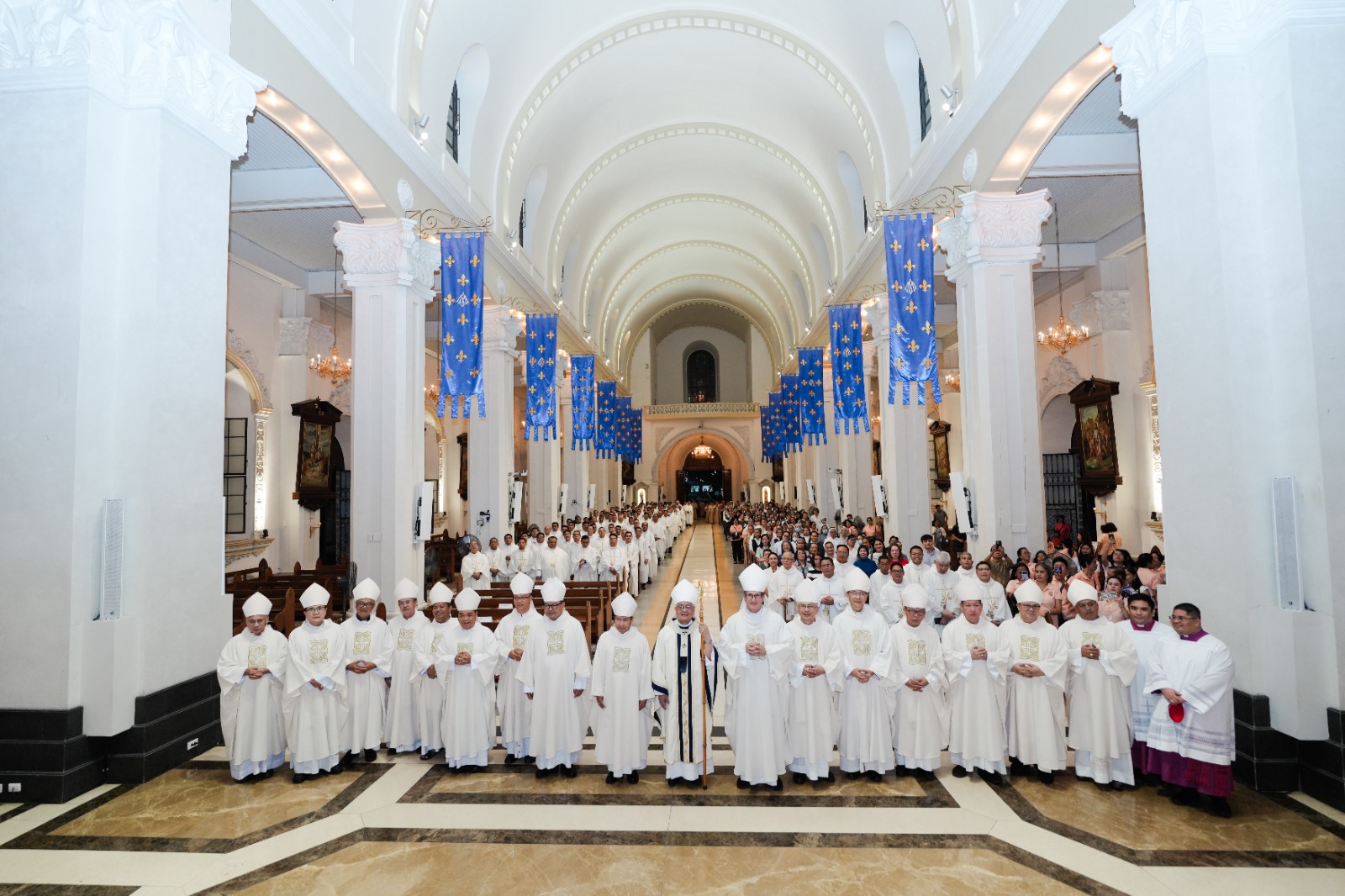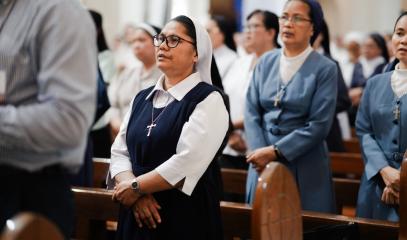Philippines Church Commits to Safeguarding Reform
The First National Safeguarding Conference, themed “Our Mission of Safeguarding: A Journey of Hope and Compassion,” seen as more than a series of lectures and workshops. It became a pilgrimage of conscience, a reckoning with past failures, and a bold step towards ecclesial renewal.
Angeles (AsiaNews) – In the heart of Central Luzon, the city of Angeles served as the backdrop for a landmark moment in the life of the Catholic Church in the Philippines. Themed “Our Mission of Safeguarding: A Journey of Hope and Compassion,” the conference was organised by the Episcopal Office for the Protection of Minors and Vulnerable Persons (PMVP) of the Catholic Bishops’ Conference of the Philippines (CBCP), in collaboration with the Pontifical Commission for the Protection of Minors (PCPM), the Catholic Safeguarding Institute (CSI), and the Conference of Major Superiors in the Philippines (CMSP).
The gathering brought 300 delegates together with local bishops, clergy, religious leaders, lay professionals joining international guests and representatives from the Catholic Bishops’ Conferences of Malaysia, Singapore, Brunei, and Vietnam. According to conference data, 76% of dioceses, 71% of apostolic vicariates, and 50% of prelatures in the Philippines were represented, alongside the Military Ordinariate.
A Call to Conversion and Accountability
The conference opened with a Mass at Holy Rosary Parish, presided over by Archbishop Florentino Lavarias, who also delivered the welcome address. Lavarias called on Church leaders to embrace safeguarding not as a bureaucratic obligation but as a theological imperative rooted in the Gospel.
“Safeguarding is not merely administrative,” Lavarias said. “It is a sacred duty that reflects our vocation to walk together in synodality and compassion.”
The rationale for the conference was grounded in Pope Francis’ repeated calls for the Church to prioritise the protection of minors and vulnerable persons. In his 2019 apostolic letter, the pope wrote, “Ensuring the safety of minor and vulnerable people is an integral part of the Church’s mission.” He urged the faithful to create safe environments and to undergo a “continuous and profound conversion” that would restore the credibility of the Church’s witness.
Global and Local Perspectives
Bishop Luis Manuel Ali Herrera, Secretary of the PCPM, delivered a keynote address emphasising safeguarding as a shared journey of synodality, solidarity, and hope. He urged Church leaders to move beyond denial and embrace transparency, citing Pope Francis’ 2018 Letter to the People of God, which acknowledged the gravity of abuse and called for a communal response.
“Protection is not an administrative task,” Ali said. “It is a theological imperative and an evangelical mandate.”
Herrera also stressed the importance of a victim-centred approach, where the safety and wellbeing of survivors take precedence. He called for decisive leadership and the integration of safeguarding into pastoral planning and diocesan governance.
Archbishop Charles Jude Scicluna, Adjunct Secretary of the Dicastery for the Doctrine of the Faith, addressed the conference via video. He outlined the legacy of Pope Francis in promoting child protection, including the establishment of the PCPM in 2014, the issuance of Vos Estis Lux Mundi in 2019, and the revision of Book VI of the Code of Canon Law in 2021.
Scicluna highlighted the need to protect complainants from retaliation and to ensure the dignity of those accused, recognising their rights and the need for pastoral support. He also cited Pope Leo XIV’s recent exhortation to bishops to act decisively in cases of abuse and to uphold current legislation.
Msgr Brendan Daly, Judicial Vicar of the Catholic Church in New Zealand, presented on the integration of safeguarding into Canon Law. He emphasised that safeguarding must be embedded in the Church’s governance, culture, and leadership. Daly discussed the importance of mandatory reporting, collaboration with civil authorities, and the need for transparency and accountability.
“Transparency is not optional,” Daly said. “It is essential to restoring trust and credibility.”
A network of Church led safeguarding programs
The conference showcased a range of programmes designed to create a culture of safety within the Church. CSI offers services in education, formation, research, accompaniment, and consultancy. Its approach emphasises personal conversion and fraternity, ensuring that safeguarding is rooted in Gospel values.
CMSP provides pathways in protection, prevention, investigation, and restoration. Other contributors include the Cebu Independent Safeguarding Team, the Salvatorian Sisters, and select dioceses that have prioritised safeguarding in their pastoral ministries.
Embedding safeguarding into formation ensures that clergy, religious, and lay leaders understand and live out these values to uphold human dignity. The goal is to create a Church where every person—especially minors and vulnerable individuals—feels protected, valued, and respected.
Practical Insights into safeguarding
Throughout the four-day event, delegates participated in concurrent sessions led by experts from the Philippines and abroad. Topics included Canon Law and Safeguarding, Digital Safety, Accompanying Victims, Understanding Perpetrators, and Safeguarding in Civil Law.
Discussions focused on the need for effective policies and procedures that are regularly reviewed and aligned with both Canon Law and domestic legislation. Delegates explored the importance of robust recruitment practices, ongoing formation, and training—particularly as abuse evolves in the digital age.
Effective complaint handling was recognised as essential, with trained personnel empowered to investigate concerns impartially and without delay, including historical and anonymous cases. Church leadership was called to embody integrity by actively implementing safeguarding policies, taking responsibility for all parties involved, and maintaining transparency through regular public reporting.
A Culture of Listening and Healing
The conference underscored that safeguarding must be rooted in a culture of listening. Victims and secondary victims must be met with compassion, therapeutic and spiritual care, and their dignity and privacy must be upheld. This commitment reflects the Church’s broader mission to be a sanctuary of healing and justice.
In closing remarks, organisers reiterated the urgency of safeguarding reform and the importance of collaboration across ecclesial and cultural boundaries. The conference concluded with a renewed commitment to building a Church that protects the vulnerable, listens to survivors, and acts with courage and compassion.
19/02/2021 14:55
19/09/2019 11:11








.png)










